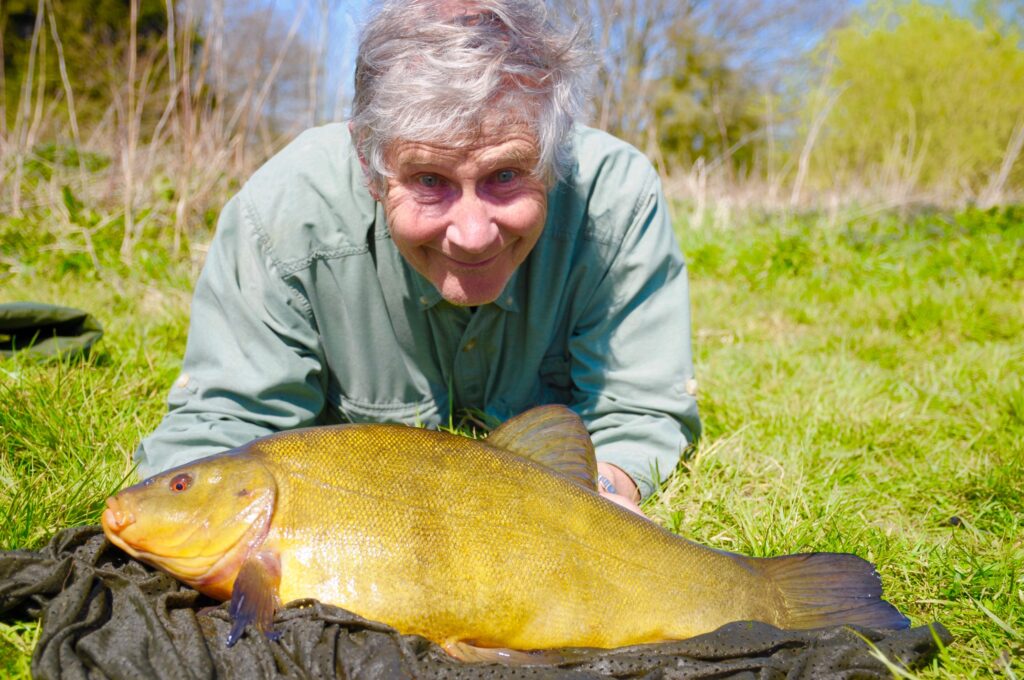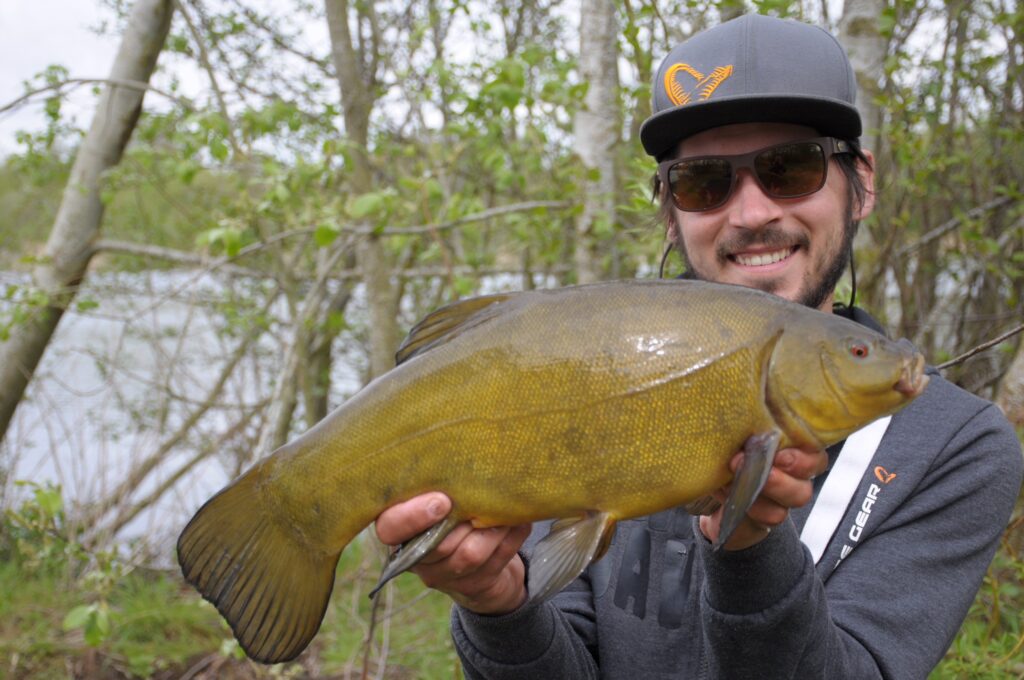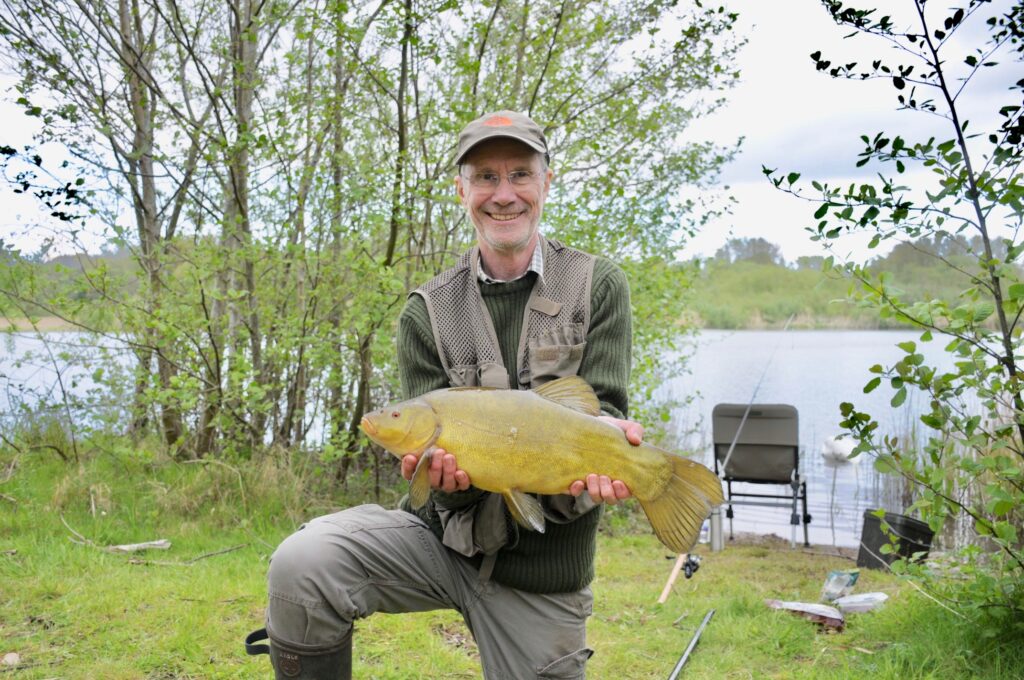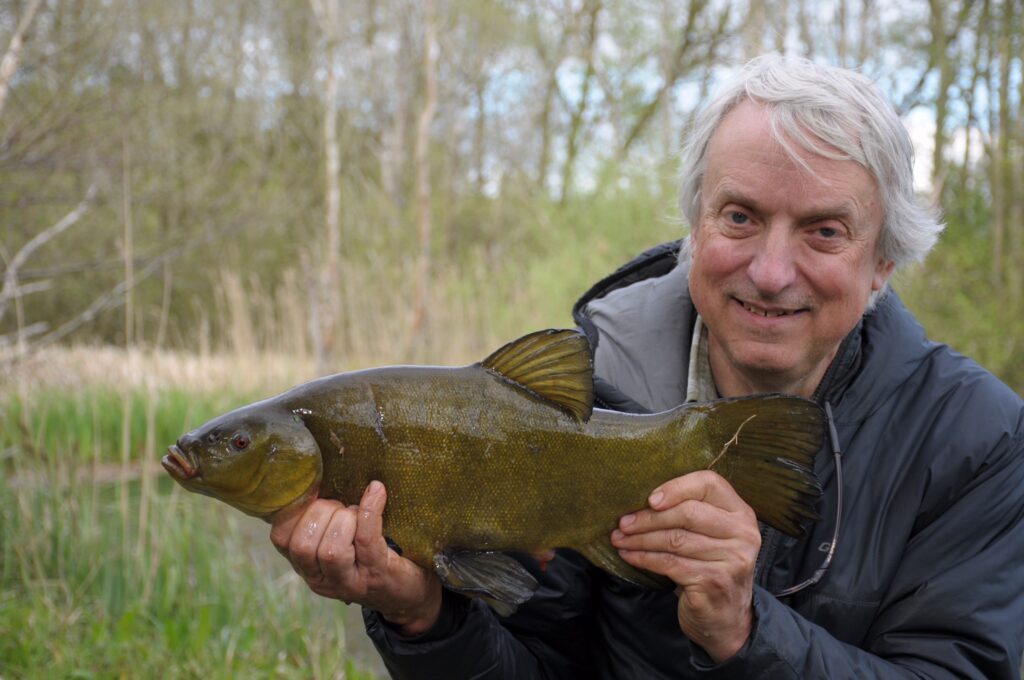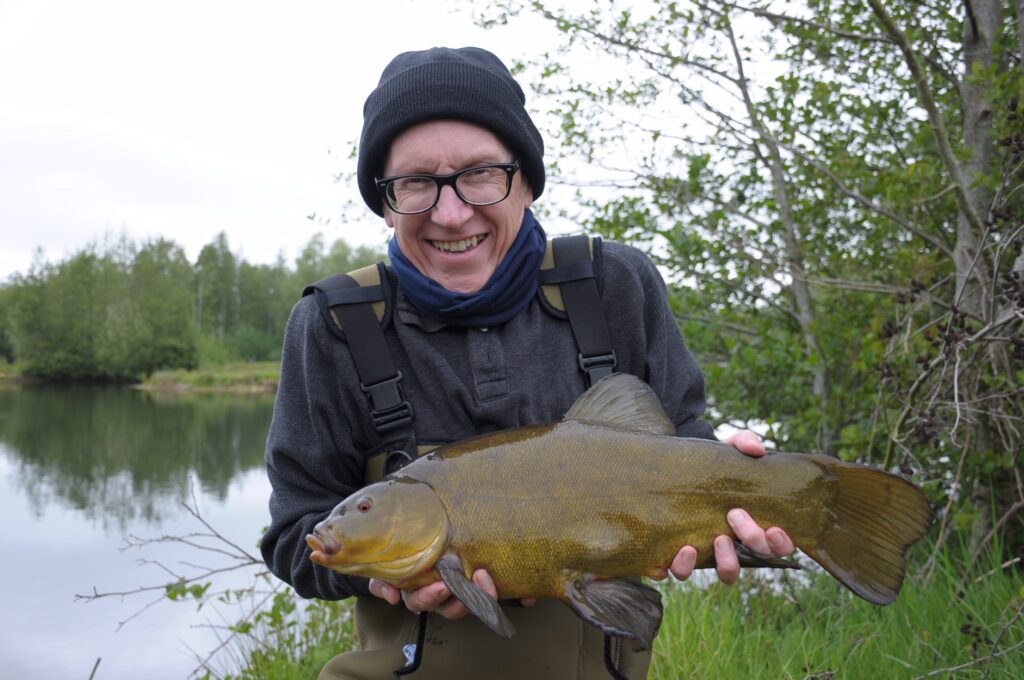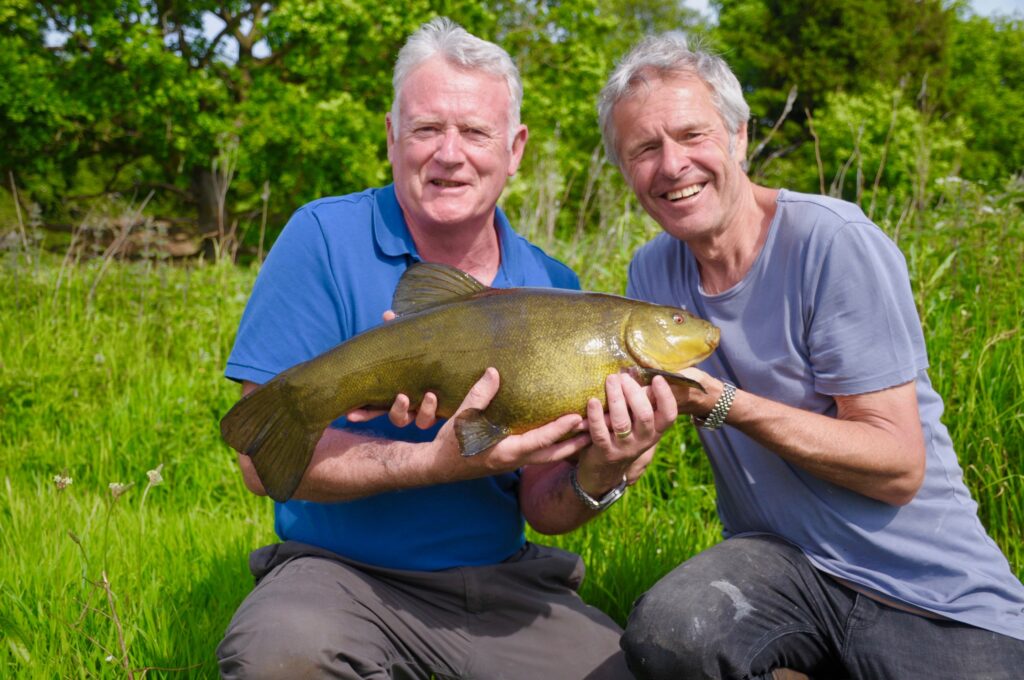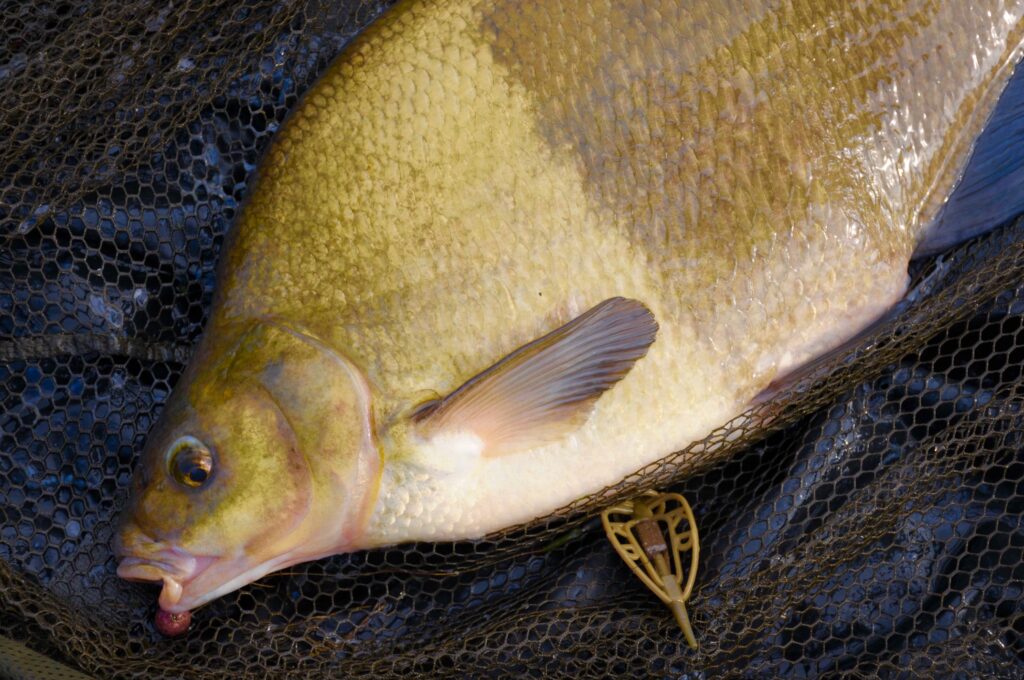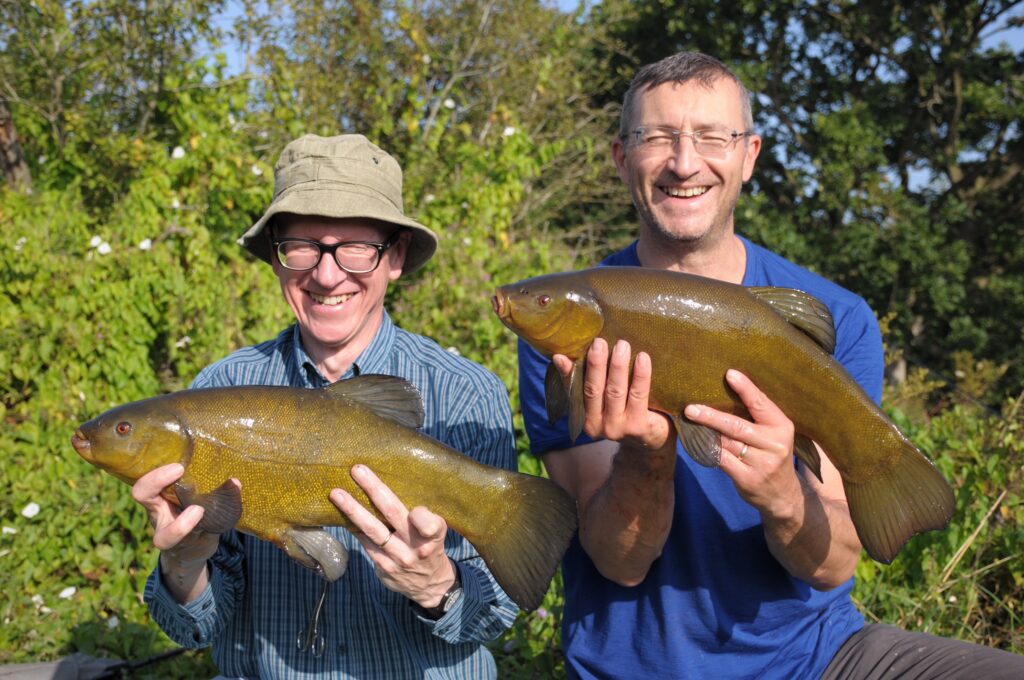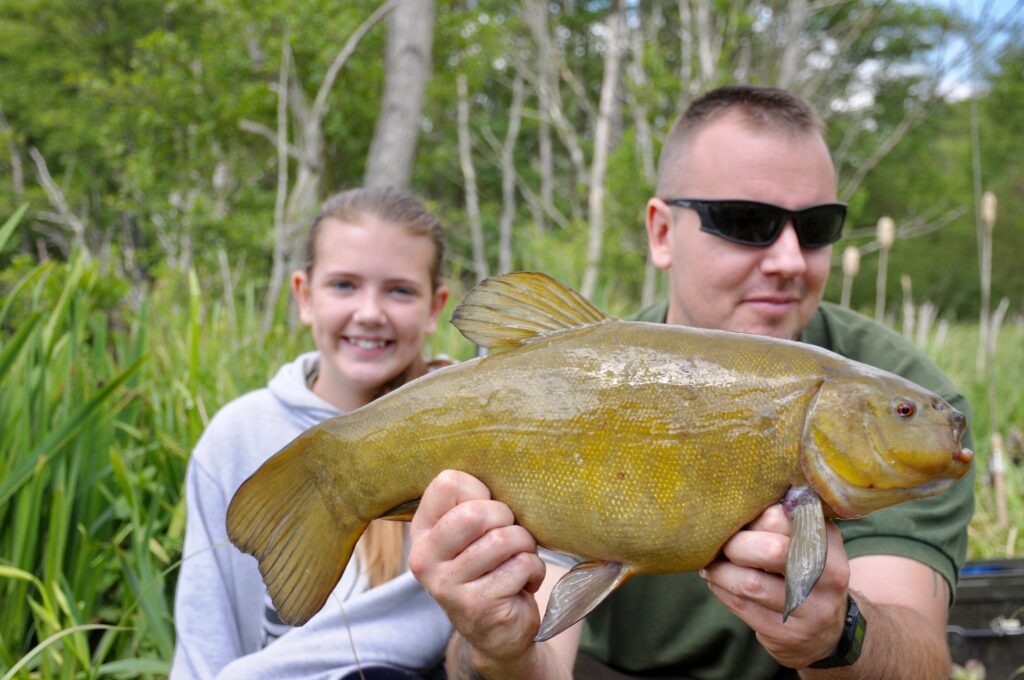J
John Bailey
Guest
#9 PROBLEMS

When things get hard, fishing at range can put you on new fish
I am aware that my Timetable so far might have made tench fishing seem reliably easy. For the main part, I do think if you take on board at least some of my advice you might catch more tench, but I would never, ever describe tench as easy or predictable, and like all fish, they can be kind one session, and killers the next. As a guide, I never relax, and I am constantly aware of how tench are responding to angling pressure. I have to be fair to fish and clients alike, and I am always scrutinising results for any indication of how the tench are responding to both us and the conditions. Which is where I have to begin!
WHEN THE WIND’S IN THE EAST…
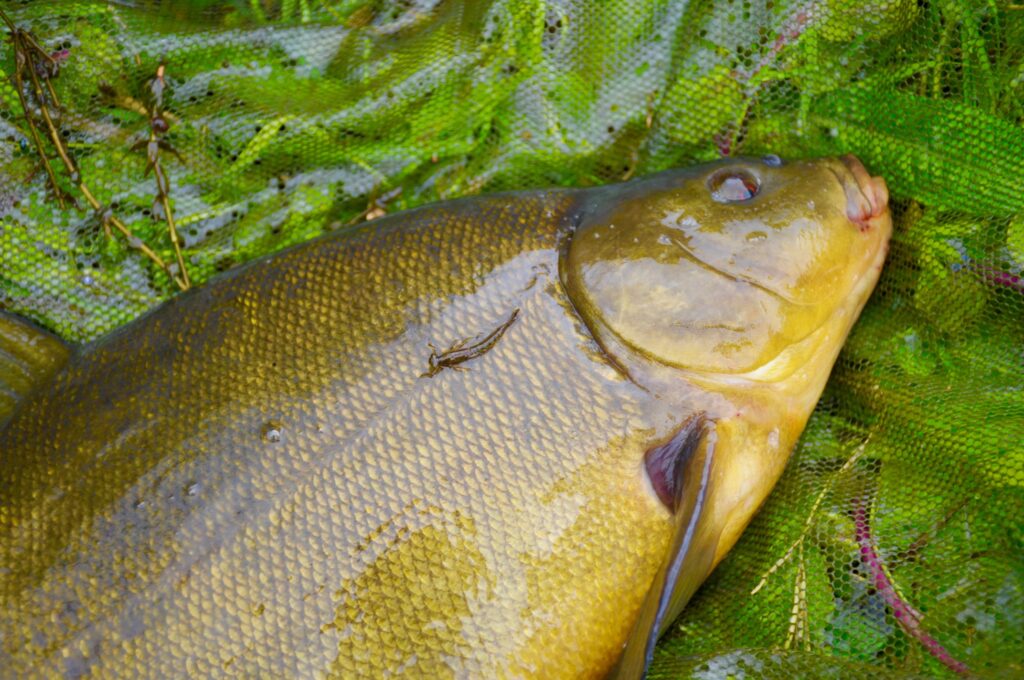
Never forget that tench primarily live on naturals, not on our baits,
and an Easterly dampens food production
I have mentioned my dread of Easterlies – and to a marginally lesser extent Northerlies – before, but I still struggle to understand why their influence is so dire. It is my habit to watch BBC’s Countryfile, in part because of the weekly weather forecast. When I see five or six days of wind arrows coming from the East any time in April and May, I could throw the telly through the window. The killjoy effect of Easterlies might well be more pronounced in East Anglia, which does feel the first, coldest blasts as they come snarling in from the sea, but this is a national curse. Of course, winds from the East have the ability to completely dampen all fly activity. During days of East winds, there will be considerably fewer birds like gulls or terns, swifts or swallows over the water. There are simply not the fly hatches you can watch streaming endlessly on days of Southerlies or Westerlies. I can only repeat what I have already said. Fish any swim that is sheltered from these winds as far as possible. You will even find that whatever is caught will come in momentary, short-lived lulls in wind strength. Yes, they are that bad, and if any of you have conclusive reasons for why, let’s be hearing from you!!
HOW THE **** DID I MISS THAT?

Tough sessions, and edging closer to the pads can pay off
I have mentioned before the conundrum of perfect bites that are seemingly unmissable, but which you miss each and every time. I ought to elaborate. This is generally the case with float fishing, and it begins to happen after a certain number of tench have been caught. Bites become fiddly or quick, and you hit perhaps 40% of them, rather than the 95% you were hitting in the early days of the swim’s life. Then, shortly after this, the float might sail away, but you start to catch 5% of the fish, if you are lucky. The obvious answer is that the fish are learning, and learning fast, and this is the reason behind the problem. The solution is far more complex. At one level, you simply change your tack slightly. Pushing the float up the line and fishing three, even four feet over-depth has an effect sometimes for a short while. Try a smaller hook, or half a boilie, instead of a whole one. Try two plastic maggots on a 16, or half a worm on a 12.
UNDER PRESSURE
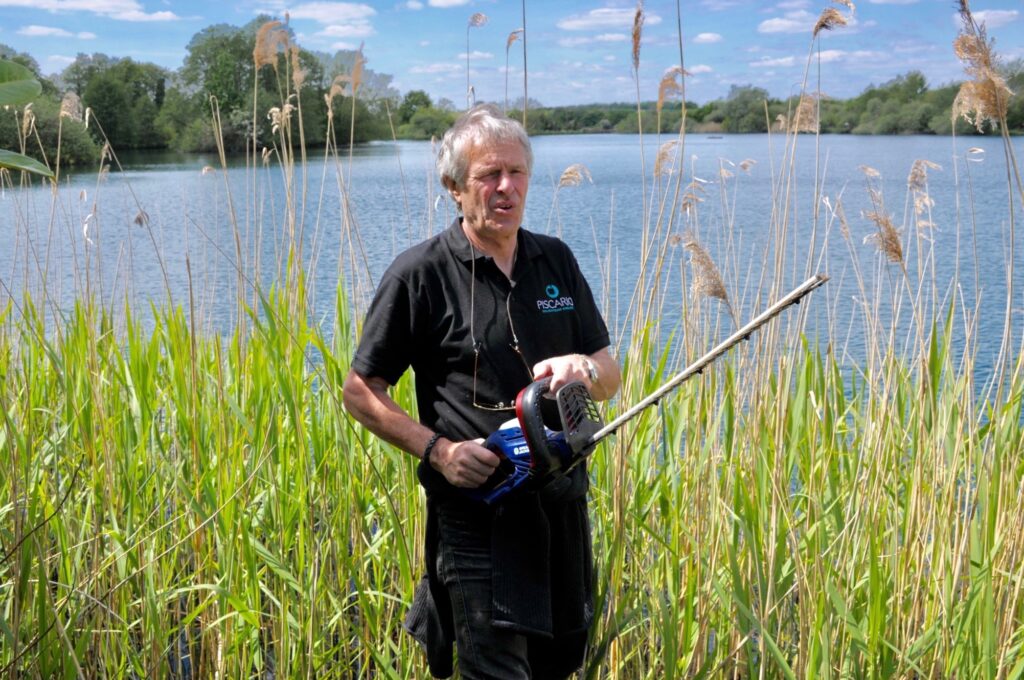
It’s hard work but sometimes you have to leave a pressured shoal,
and find a new swim and fresh fish
On a deeper level, you have to understand that you have pressured the fish overly, and it might well be time to leave these particular tench in peace – if you can. The main reason tench are so hard on heavily-fished public waters is that they are never left in peace, and have developed hugely sophisticated evasion strategies. You can have a very prolific, but hammered lake, and hardly any tench will come out. If you are lucky to have a tench water that is comparatively quiet or, say, fished by carpers alone, then move off perhaps, and find fish elsewhere on the lake if you can. And if you should be lucky enough to have a tench swim that by and large only you fish, catch them sparingly, and you will keep that swim hot for seasons. I’d rather catch two to four fish a session, year in year out, than have twenty fish a session for a couple of months, and then nothing at all.
LOSING IT AT LOST LAKE

I generally favour red boilies for my tench but when I struggle, Scopex are a lifeline

When things are tough, flavours can spice things up
Lost Lake has caused me so many problems I was glad when I lost my rights to go there! It was five acres, generally shallow for a pit, with good weed growth and a soft bottom. There were only around three fishable swims on the lake, and when you rocked up the water would be quiet. Pile in a bucket of bait however, and the swims would explode with bubbles. They’d froth and colour up, and when the sun was high, you could even see dozens of big tinca shapes gliding through the mayhem. Yet, despite the fact that the fish were obviously on the bait, a fish, a bite even, was a giddy result. Over ten years, my gang and I tried every trick in the tencher’s book, and then some. Just very occasionally we’d have a breakthrough, and think we’d cracked it. After a mere tench or two, the lake would revert, and the new brainwave would be as useless as the rest. A perfect example was the Ratters Bloodworm Rig. He made up a size 14 with a string of plastic bloodworm on a hair, all doused in bloodworm essence. He had three seven pounders in three casts, and did not get a touch on the rig for the following five years.
SUMMERTIME BLUES

A stunner caught against the odds!
I have stressed this Timetable has been primarily aimed at the spring tench angler, and problems only get worse as summer advances. As the waters warm and the insect life explodes, the tench become more picky. Then you have the daphnia blooms to contend with, when great clouds of the stuff hang in mid-water, and the tench drift through, feeding like basking shark. David Cooper, one-time bailiff at Blickling Lake, once tried to conquer summer tench by putting in so much stewed wheat that they would forsake the naturals altogether. He bought three tons of the stuff – and that was the dry weight! Boiled, it weighed double that at least, and he delivered it to the bank by tractor and trailer. Each evening he spread four dustbins’ full of the grains along the dam bank, and after a week, he had attracted every waterfowl in North Norfolk… and the lake’s copious head of bream. Not a tench could we catch!
Tench are our most glorious coarse species, and we all love them to bits. But be warned. Easy they are not!
The post The Tench Timetable 00:09 first appeared on FishingMagic Magazine.
Continue reading...

When things get hard, fishing at range can put you on new fish
I am aware that my Timetable so far might have made tench fishing seem reliably easy. For the main part, I do think if you take on board at least some of my advice you might catch more tench, but I would never, ever describe tench as easy or predictable, and like all fish, they can be kind one session, and killers the next. As a guide, I never relax, and I am constantly aware of how tench are responding to angling pressure. I have to be fair to fish and clients alike, and I am always scrutinising results for any indication of how the tench are responding to both us and the conditions. Which is where I have to begin!
WHEN THE WIND’S IN THE EAST…

Never forget that tench primarily live on naturals, not on our baits,
and an Easterly dampens food production
I have mentioned my dread of Easterlies – and to a marginally lesser extent Northerlies – before, but I still struggle to understand why their influence is so dire. It is my habit to watch BBC’s Countryfile, in part because of the weekly weather forecast. When I see five or six days of wind arrows coming from the East any time in April and May, I could throw the telly through the window. The killjoy effect of Easterlies might well be more pronounced in East Anglia, which does feel the first, coldest blasts as they come snarling in from the sea, but this is a national curse. Of course, winds from the East have the ability to completely dampen all fly activity. During days of East winds, there will be considerably fewer birds like gulls or terns, swifts or swallows over the water. There are simply not the fly hatches you can watch streaming endlessly on days of Southerlies or Westerlies. I can only repeat what I have already said. Fish any swim that is sheltered from these winds as far as possible. You will even find that whatever is caught will come in momentary, short-lived lulls in wind strength. Yes, they are that bad, and if any of you have conclusive reasons for why, let’s be hearing from you!!
HOW THE **** DID I MISS THAT?

Tough sessions, and edging closer to the pads can pay off
I have mentioned before the conundrum of perfect bites that are seemingly unmissable, but which you miss each and every time. I ought to elaborate. This is generally the case with float fishing, and it begins to happen after a certain number of tench have been caught. Bites become fiddly or quick, and you hit perhaps 40% of them, rather than the 95% you were hitting in the early days of the swim’s life. Then, shortly after this, the float might sail away, but you start to catch 5% of the fish, if you are lucky. The obvious answer is that the fish are learning, and learning fast, and this is the reason behind the problem. The solution is far more complex. At one level, you simply change your tack slightly. Pushing the float up the line and fishing three, even four feet over-depth has an effect sometimes for a short while. Try a smaller hook, or half a boilie, instead of a whole one. Try two plastic maggots on a 16, or half a worm on a 12.
UNDER PRESSURE

It’s hard work but sometimes you have to leave a pressured shoal,
and find a new swim and fresh fish
On a deeper level, you have to understand that you have pressured the fish overly, and it might well be time to leave these particular tench in peace – if you can. The main reason tench are so hard on heavily-fished public waters is that they are never left in peace, and have developed hugely sophisticated evasion strategies. You can have a very prolific, but hammered lake, and hardly any tench will come out. If you are lucky to have a tench water that is comparatively quiet or, say, fished by carpers alone, then move off perhaps, and find fish elsewhere on the lake if you can. And if you should be lucky enough to have a tench swim that by and large only you fish, catch them sparingly, and you will keep that swim hot for seasons. I’d rather catch two to four fish a session, year in year out, than have twenty fish a session for a couple of months, and then nothing at all.
LOSING IT AT LOST LAKE

I generally favour red boilies for my tench but when I struggle, Scopex are a lifeline

When things are tough, flavours can spice things up
Lost Lake has caused me so many problems I was glad when I lost my rights to go there! It was five acres, generally shallow for a pit, with good weed growth and a soft bottom. There were only around three fishable swims on the lake, and when you rocked up the water would be quiet. Pile in a bucket of bait however, and the swims would explode with bubbles. They’d froth and colour up, and when the sun was high, you could even see dozens of big tinca shapes gliding through the mayhem. Yet, despite the fact that the fish were obviously on the bait, a fish, a bite even, was a giddy result. Over ten years, my gang and I tried every trick in the tencher’s book, and then some. Just very occasionally we’d have a breakthrough, and think we’d cracked it. After a mere tench or two, the lake would revert, and the new brainwave would be as useless as the rest. A perfect example was the Ratters Bloodworm Rig. He made up a size 14 with a string of plastic bloodworm on a hair, all doused in bloodworm essence. He had three seven pounders in three casts, and did not get a touch on the rig for the following five years.
SUMMERTIME BLUES

A stunner caught against the odds!
I have stressed this Timetable has been primarily aimed at the spring tench angler, and problems only get worse as summer advances. As the waters warm and the insect life explodes, the tench become more picky. Then you have the daphnia blooms to contend with, when great clouds of the stuff hang in mid-water, and the tench drift through, feeding like basking shark. David Cooper, one-time bailiff at Blickling Lake, once tried to conquer summer tench by putting in so much stewed wheat that they would forsake the naturals altogether. He bought three tons of the stuff – and that was the dry weight! Boiled, it weighed double that at least, and he delivered it to the bank by tractor and trailer. Each evening he spread four dustbins’ full of the grains along the dam bank, and after a week, he had attracted every waterfowl in North Norfolk… and the lake’s copious head of bream. Not a tench could we catch!
Tench are our most glorious coarse species, and we all love them to bits. But be warned. Easy they are not!
The post The Tench Timetable 00:09 first appeared on FishingMagic Magazine.
Continue reading...

